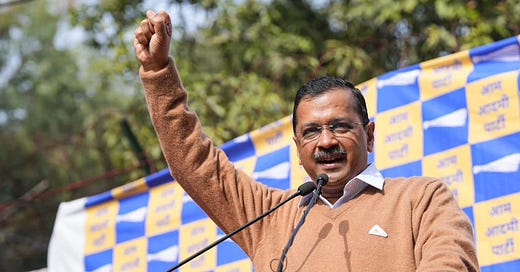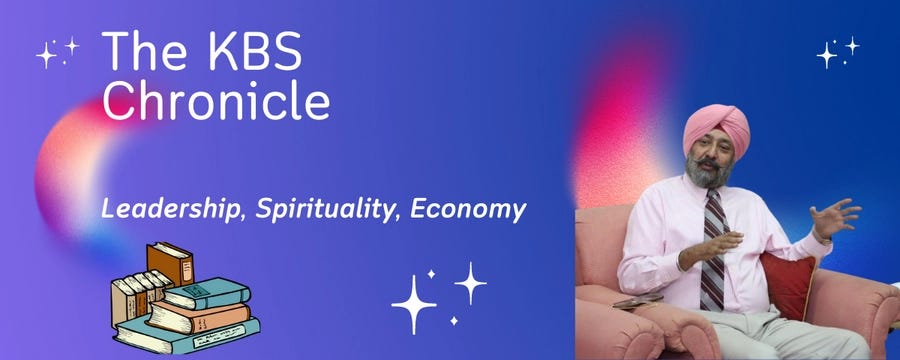{Breaking}: Delhi Court Grants Bail to Arvind Kejriwal in Delhi Liquor Policy Case
Bail Granted
In a major relief, a Delhi Court today (20th June 2024) granted regular bail to the beleaguered Chief Minister Arvind Kejriwal in the money laundering case connected to the alleged Delhi Liquor Policy scam. Vacation Judge Nyay Bindu of Rouse Avenue Courts passed the order after reserving it earlier today, following two days of expansive hearings. The Judge ordered Kejriwal's release on a personal bond of Rs 1 lakh but imposed certain conditions before granting him the relief, including that he must not hamper the investigation or influence the witnesses.
Legal Analysis
While the detailed order of the Court was not available until the publication of our article, we have provided our legal analysis considering the law laid down by the Supreme Court and the provisions of the PMLA, 2002, particularly those of Section 45, which make the grant of regular bail in such cases exceedingly difficult.
Impact in Trial
Although it is usually a final recital in the bail order that the observations in the same would not have any bearing on the merits of the case during the trial, the satisfaction of the Judge in the bail order— as mandated by section 45— that the accused did not prima facie appear to be guilty of offence of money laundering will make the prosecution's task in the trial very onerous.
ED's Plea for Stay Rejected
ED's special counsel Zoheb Hossain prayed for a stay of the order until the probe agency could exercise its legal remedies. However, the court rejected this request. It is, however, very likely that ED would challenge the bail order in the Delhi High Court, as soon as feasible.
Stringent Requirements for Bail Under PMLA
a.) Difficulties in Satisfying Section 45 Conditions
Unlike other laws, Section 45 of the PMLA, 2002 imposes exceedingly stringent twin conditions for granting regular bail. It inter alia states: “Where the Public Prosecutor opposes the application, the court is satisfied that there are reasonable grounds for believing that the accused is not guilty of such offence and that he is not likely to commit any offence while on bail.” Satisfaction in respect of these conditions is very difficult for any Judge, be it of the lower court or a constitutional court, to record.
b.) Constitutional Validity and Challenges in Practice
This provision, although held to be constitutional in the Vijay Madanlal Choudhary case, comes in the way of bail being granted, as has been seen even up to the Supreme Court of India in the cases of Manish Sisodia and Satyendar Jain. Legal experts maintain that recording this satisfaction is difficult in either of the two scenarios: (1) the investigation is at a preliminary stage, or (2) the investigation is complete and the trial is to begin, as the cognizance has yet to be taken.
c.) Impact of Pending Detailed Order
Although the detailed order has not been uploaded until the publication of this article, it is certain that the order would contain the satisfaction of the Vacation Judge in respect of the two conditions stipulated under Section 45. The order will also definitely contain other surrounding circumstances that led the Court to reach its satisfaction regarding the fulfilment of these twin conditions.
d.) Factors Influencing the Bail Decision
Moreover, the fact that Arvind Kejriwal has still not been made an accused by the CBI in the “predicate offence” FIR, the non-recovery of the “proceeds of crime” by the ED so far, and the fact that the Special PMLA Court has still not taken cognizance are very likely to have been factors behind the bail by the Vacation Judge, which many legal experts did not expect.
Background of the Case
Kejriwal was arrested by the Enforcement Directorate (ED) on March 21. He was granted interim bail by the Supreme Court in May, which lasted until June 1 due to the general elections. Kejriwal surrendered on June 2.
a.) ED's Allegations
ASG SV Raju, appearing for the Enforcement Directorate, submitted that co-accused Chanpreet Singh received large cash amounts from entrepreneurs and paid hotel bills for Arvind Kejriwal. Raju emphasized that the ED had concrete evidence in the case.
b.) Defence's Rebuttal
Senior Advocate Vikram Chaudhari, representing Kejriwal, argued that Kejriwal is not an accused in the CBI case and was called only as a witness. Chaudhari questioned the credibility of the ED's evidence and the timing of Kejriwal's arrest, suggesting political motivations. Chaudhari also stated that co-accused Chanpreet Singh did not claim he paid for AAP Goa elections or collected proceeds of crime. He challenged the presumption of Kejriwal's involvement based on extracted chats and indirect links.
Charges and Supplementary Chargesheet
The ED recently filed a supplementary chargesheet naming Kejriwal and the Aam Aadmi Party as accused. The PMLA Special Court has reserved the order on the cognizance of this seventh supplementary chargesheet. This was perhaps a significant factor in the Vacation Judge granting Kejriwal regular bail, since formal cognizance of a chargesheet or criminal complaint, arraigning Arvind Kejriwal as an accused, had not been passed.
Ongoing Accusations
The ED alleges that Kejriwal is the "kingpin" of the Delhi excise scam, directly involved in laundering over Rs. 100 crores. The agency claims the excise policy was a conspiracy to grant excessive profits to certain private companies, coordinated by Vijay Nair on behalf of Kejriwal and Manish Sisodia. However, while the investigating agency claimed to have unraveled the “money trail”, it could not locate the “proceeds of crime”, which it could have attached in the exercise of its jurisdiction. This may also have weighed on the Judge's mind while granting regular bail.
Summing Up
a.) Significant Development in Kejriwal's Case
As the legal proceedings continue, Kejriwal's bail in this high-profile case marks a significant development and a major relief for Kejriwal. While it’s only a bail order and not one of acquittal, the observations in the same, in theory, would not have any bearing on the merits of the case during the trial. However, the satisfaction of the Judge in the bail order that the accused did not prima facie appear to have committed the offence of money laundering is seen by many as almost akin to a quasi-acquittal. While the ED will challenge this bail order vigorously in the Delhi High Court, the order of the Special Court taking cognizance of the ED’s chargesheet against Arvind Kejriwal is awaited.
b.) Future Course and Political Implications
The Court's further decisions and ongoing investigations will determine the future course of this controversial case. With the Delhi CM Arvind Kejriwal out on bail, his major difficulty might be over as the trial is likely to continue for years. Whether other accused, including Manish Sisodia and Satyendar Jain, could benefit from the same remains to be seen. This order is likely to be celebrated by the AAP cadres as the CM returns to tackle pressing issues in Delhi, including the unprecedented water crisis. Additionally, his release will allow him to participate in the deliberations of the opposition’s INDI Alliance, where he is a key player.
If you believe this article would interest someone you know, please feel free to share it anonymously (for us), using any platform that you prefer.





